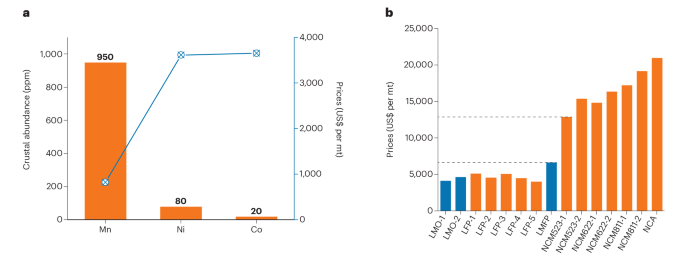Jeffery Kruse On What Legal Teams Get Wrong About Contracts And How To Fix It
Too often, contracts are treated as formal legal documents instead of practical business tools. The post Jeffery Kruse On What Legal Teams Get Wrong About Contracts And How To Fix It appeared first on Above the Law.


In-house lawyers spend a lot of time talking about contract efficiency. We run RFPs for CLM tools, benchmark turnaround times, build clause libraries, and explore AI-powered review platforms. But there’s one thing we don’t talk about enough, even though it might be the most important part of making contracts work better.
That thing is communication.
In a recent episode of Notes to My (Legal) Self, legal consultant Jeffery Kruse shared a perspective every in-house team should hear. Legal operations, he said, is less about tools and more about how we communicate. And when it comes to improving contracts, that message matters more than ever.
Watch the full interview here:
Contracts Aren’t Legal Artifacts. They’re Business Messages.
Kruse believes legal teams often lose sight of the real purpose of contracts. Too often, contracts are treated as formal legal documents instead of practical business tools. We fill them with legalese, preserve outdated formatting, and focus on risk over usability. But the people reading and using these contracts — sales reps, finance leads, procurement teams == are usually not lawyers.
When contracts are hard to understand, they slow down the business. People hesitate to move forward. Questions pile up. Legal becomes the translator, and in the process, the perception grows that legal is a bottleneck rather than a partner.
What We Say Versus What They Hear
To help legal teams reset their approach, Kruse uses a framework called SEE. It stands for Simple, Easy, and Effective.
“Simple” means using clear, everyday language that your audience understands. “Easy” refers to structure and flow, making sure the contract is logically organized and not overwhelming. “Effective” means the contract does what it is supposed to do — it helps the reader take action, builds alignment, or delivers clarity.
Many contracts fall short. A contract might be technically accurate, but if a business stakeholder cannot quickly understand what it means or what they’re agreeing to, it is not useful. It may even be harmful if it creates confusion or delay.
What This Means For In-House Legal Teams
Before jumping into technology solutions or restructuring workflows, Kruse recommends that legal teams ask a few fundamental questions. Who is reading this contract? What do they need to understand? Is the document written in a way that supports clear business decisions? Can someone without a law degree follow what’s being said?
Kruse shared an example of a time he failed to get buy-in from IT and finance for a legal tech project. He realized afterward that he had presented the problem in legal language, not business terms. Those departments were willing to help, but only once he learned to speak in a way that made sense to them.
Make Contract Usability A Core Metric
If we agree that contracts are communication tools, then we need new ways to evaluate them. Instead of just tracking legal risk or review time, legal teams should consider metrics like how often contracts require clarification after they are signed, how long it takes for a nonlegal user to understand key terms, or how much confidence other teams have in the contract process.
Kruse encourages testing your communication before rollout. Share your draft with one or two trusted business colleagues and ask for their feedback. Is it easy to understand? Can they explain the terms to someone else? These small steps can prevent misalignment and improve how legal supports the business.
What To Do Next
For legal leaders, the takeaway is this. Contracts are not just about legal protection. They are tools that help the business move forward. Their effectiveness depends not only on what is written, but on how clearly the message is delivered.
Before launching a new playbook, tech platform, or contract template, take a moment to ask whether the document is clear. Is the language simple? Is the structure easy to navigate? Will it actually help someone do their job?
Because when people understand their contracts, they are more likely to trust them. And that is what gets deals done.
Olga V. Mack is the CEO of TermScout, an AI-powered contract certification platform that accelerates revenue and eliminates friction by certifying contracts as fair, balanced, and market-ready. A serial CEO and legal tech executive, she previously led a company through a successful acquisition by LexisNexis. Olga is also a Fellow at CodeX, The Stanford Center for Legal Informatics, and the Generative AI Editor at law.MIT. She is a visionary executive reshaping how we law—how legal systems are built, experienced, and trusted. Olga teaches at Berkeley Law, lectures widely, and advises companies of all sizes, as well as boards and institutions. An award-winning general counsel turned builder, she also leads early-stage ventures including Virtual Gabby (Better Parenting Plan), Product Law Hub, ESI Flow, and Notes to My (Legal) Self, each rethinking the practice and business of law through technology, data, and human-centered design. She has authored The Rise of Product Lawyers, Legal Operations in the Age of AI and Data, Blockchain Value, and Get on Board, with Visual IQ for Lawyers (ABA) forthcoming. Olga is a 6x TEDx speaker and has been recognized as a Silicon Valley Woman of Influence and an ABA Woman in Legal Tech. Her work reimagines people’s relationship with law—making it more accessible, inclusive, data-driven, and aligned with how the world actually works. She is also the host of the Notes to My (Legal) Self podcast (streaming on Spotify, Apple Podcasts, and YouTube), and her insights regularly appear in Forbes, Bloomberg Law, Newsweek, VentureBeat, ACC Docket, and Above the Law. She earned her B.A. and J.D. from UC Berkeley. Follow her on LinkedIn and X @olgavmack.
The post Jeffery Kruse On What Legal Teams Get Wrong About Contracts And How To Fix It appeared first on Above the Law.
















































































































































